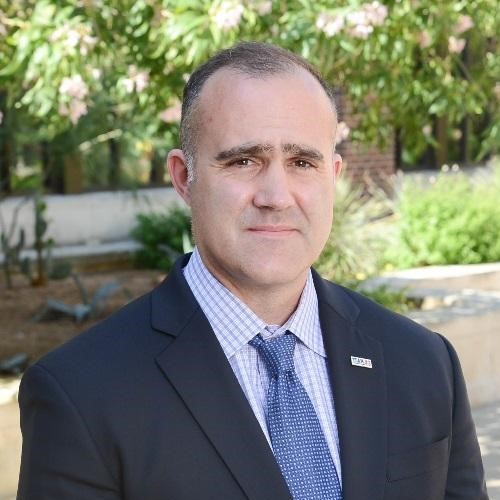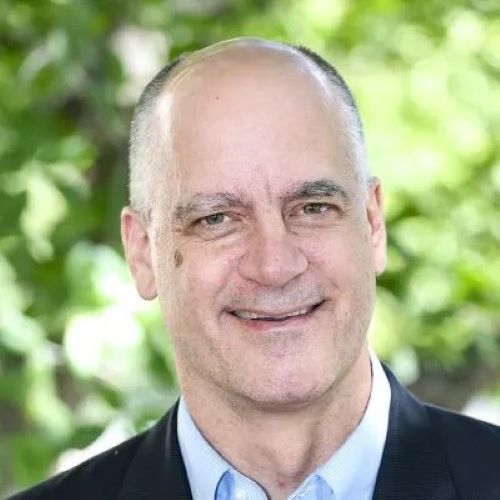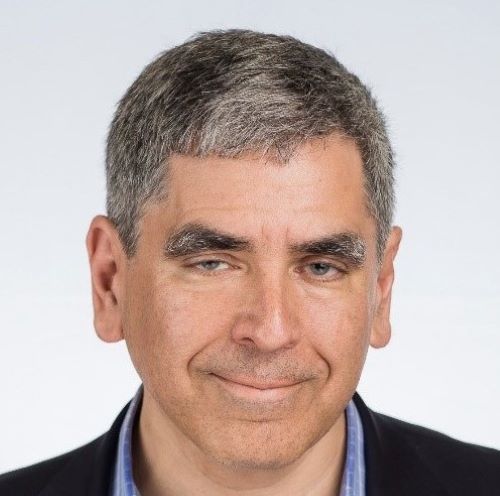
Matthew Amidon
Contractor, American Enterprise Institute
Colonel Matthew F. Amidon, USMC (Ret.) is a Contractor the American Enterprise Institute. In this capacity and with a specific focus on Veterans and Military Families, he supports policy efforts that enable workforce readiness, employment retraining programs, and workforce and talent development. Previously, he served as the Director of the Veterans and Military Families Program at the George W. Bush Institute in Dallas Texas. There, he led policy, program, and research efforts to advance outcomes for those who have served and their families in three key areas; employment, education, and health and well-being. Before his retirement in 2024, Colonel Amidon served in both active duty and reserve capacities with a career spanning thirty years. As an AV-8B Harrier pilot, he deployed in support of both Operation Enduring Freedom and Operation Iraqi Freedom, at the operational and staff level. In his last command billet, he served as Assistant Wing Commander, 4th Marine Aircraft Wing. 4th MAW operates from numerous sites in 14 states with over 7,100 personnel and 160 aircraft. Its mission is to provide combat forces in support of Overseas Contingency Operations, Theater Security Cooperation missions, training exercises and daily tasking in support of the active component. In early 2020, Colonel Amidon completed his commitment to the Creating Options for Veterans’ Expedited Recovery (COVER) Commission. COVER provided advice via its report to the VA, the President, and Congress, and examined the benefits of integrative treatments for the mental health conditions of veterans. The commission also analyzed the benefits of incorporating complementary and integrative health treatments in non-government affiliated facilities. Colonel Amidon is originally from Stowe, Vermont and is a graduate of The University of Vermont. He earned his MBA at Southern Methodist University Cox School of Business in 2009. In 2012, he attended The Eisenhower School for National Security and Resource Strategy where he earned a Master of Science. Colonel Amidon is married with three children.

Mason Bishop
Nonresident Fellow, American Enterprise Institute
Mason M. Bishop is a nonresident fellow at AEI, where he focuses on workforce development, the reform of employment and job training programs (including policies, practices, and innovations), and career and technical education. Concurrently, Mr. Bishop is the owner and principal at WorkED Consulting, where he works specifically on postsecondary training and credentialing, entrepreneurship, and workforce development tailored to the high-tech economy. He also serves as President of QA Commons, a nonprofit dedicated to the integration of employability skills (which are needed to acquire the set of skills and behaviors that are necessary for every job) into education and career readiness programs. From 2001 to 2007, Mr. Bishop served as deputy assistant secretary for employment and training at the US Department of Labor, where he led national workforce policy efforts and initiatives and oversaw key workforce investment programs. Earlier he coordinated the legislative efforts to create Utah’s Department of Workforce Services. Mr. Bishop has testified before Congress. His writing includes studies of federal employment and training programs; vocational rehabilitation; workforce planning in Austin, Texas; and the Utah Department of Workforce Services as a workforce system integration model.

Elizabeth Currid-Halkett
James Irvine Chair in Urban and Regional Planning, USC
Elizabeth Currid-Halkett is the James Irvine Chair in Urban and Regional Planning and professor of public policy at the Price School at the University of Southern California. A recipient of a 2023 Guggenheim Fellowship, she holds the Kluge Chair in Modern Culture at the Library of Congress. Currid-Halkett is the author of four books, including most recently The Overlooked Americans forthcoming with Basic Books in June 2023. Her books have been published in multiple languages. Currid-Halkett’s work has been featured in the New York Times, Wall Street Journal, the Economist, and the New Yorker. She lives in Los Angeles, California.

Richard Hendra
Director, Center for Data Insights, MDRC
Hendra directs the Center for Data Insights, which uses rigorous data science methods to improve programs that serve populations in need. During his tenure at MDRC, Hendra has led quantitative research on a range of projects focused on upward mobility. He is currently the project director for the TANF Data Innovation initiative, a national technical assistance project that supports maximizing effective use of TANF and other administrative data to help agencies make more informed decisions about how to best serve their clients. Hendra is also the principal investigator or senior advisor on several evaluations and data science projects focused on employment, housing, training, financial inclusion, and substance abuse issues. Hendra has a Ph.D. in public and urban policy.

Anne Kim
Senior Fellow, FutureEd
Anne Kim writes about education, workforce and social policy. She is a contributing editor at Washington Monthly magazine, a Senior Fellow at FutureEd, and the author of two books: Abandoned: America’s Lost Youth and the Crisis of Disconnection (The New Press), winner of the 2020 Goddard Riverside Stephan Russo Book Prize for Social Justice; and Poverty for Profit: How Corporations Get Rich Off America’s Poor (forthcoming, The New Press). She is also the author of STEM Voices: The Experiences of Women and Minorities in Science, Technology, Engineering and Math Occupations (AIE). A veteran of the Progressive Policy Institute, Third Way and other District of Columbia think tanks and a former senior staffer on Capitol Hill, her work has appeared in The Washington Post, Newsweek, The Atlantic and numerous other national publications. She has a bachelor’s degree in journalism from the University of Missouri-Columbia and a law degree from Duke University.

Kadeem Noray
Research Associate, Harvard University
Kadeem is a Postdoctoral Fellow at the National Bureau of Economic Research (NBER), a Research Associate at Opportunity Insights at Harvard University, and a research advisor for Rise at Schmidt Futures. Kadeem earned his PhD in Public Policy (Economics Track) from Harvard University in 2023, an MS in Applied Economics from Montana State University in 2017 and a BS in Mathematics, Economics, and Physics at Hillsdale College in 2015.

Brent Orrell
Senior Fellow, American Enterprise Institute
Brent Orrell is a senior fellow at the American Enterprise Institute, specializing in job training and workforce development with a special focus on disconnected and disadvantaged populations, including youth, justice-involved, veterans, and individuals with physical or mental limitations. Recently, he has focused on the workforce opportunities and challenges resulting from generative AI and automation, as well as strategies for improving economic mobility in rural, redeveloping, and non-metropolitan areas.

Adam Peck
Executive Director, Workforce Investment Board of Tulare County

Tony Pipa
Senior Fellow, Brookings Institution
Tony Pipa is a senior fellow in the Center for Sustainable Development at the Brookings Institution. Tony launched and leads the Reimagining Rural Policy initiative, which seeks to modernize and transform U.S. policy to better enable equitable and sustainable development across rural America. He also launched and leads the Local Leadership on the Sustainable Development Goals (SDGs) initiative, which explores the approach cities and local institutions are taking to solve local problems while driving progress on global policy and transnational issues. Tony serves as treasurer of StriveTogether, as a senior associate research fellow in the Global Cities program at the Italian Institute for International Political Studies, and as a member of several task forces and advisory committees. He grew up in rural Elysburg, Pennsylvania, in the heart of anthracite coal country and attended Stanford University, graduated from Duke University, and earned a Master of Public Administration at the Harvard Kennedy School.

Vincent Smith
Nonresident Senior Fellow, American Enterprise Institute
Vincent H. Smith is a nonresident senior fellow and the director of agricultural policy studies at the American Enterprise Institute (AEI). He is also professor emeritus at Montana State University, where he was professor of economics in the Department of Agricultural Economics and Economics. At AEI, Dr. Smith focuses on US agricultural policy, including commodity policy, risk management, science and technology, subsidies, and the federal crop insurance program. He also studies climate change and US agricultural policy and the role of US agriculture in global food security, including US emergency food aid programs. Dr. Smith is the author of nine books and monographs and has published hundreds of articles on agricultural policy and other economic issues. His work has been recognized nationally through multiple national awards for outstanding research programs. In 2008, he became a distinguished scholar of the Western Agricultural Economics Association. He received a PhD from North Carolina State University and bachelor’s and master’s degrees from the University of Manchester in the United Kingdom.

Daniel Sumner
Frank H. Buck Jr. Distinguished Professor, UC Davis
Daniel A. Sumner is the Frank H. Buck Jr. Distinguished Professor in the Department of Agricultural and Resource Economics, University of California, Davis. He is also the director of the University of California Giannini Foundations for Agricultural Economics. For many years he has taught “The Economics of Agricultural Sustainability” to a diverse group of undergraduates. Sumner’s academic research, teaching and outreach have concentrated on challenges facing farms, agricultural industries, and consumers including such issues as projecting supply, demand and price for farm inputs and outputs, food demand tied to farm-based product attributes, and competition among firms, regions, and industries. Much of his research has focused on international trade and government subsidy and regulatory policy. His recent book with Robin Goldstein Can Legal Weed Win? The Blunt Realities of Cannabis Economics was published by the University of California Press in 2022. Before returning to California in 1993, Sumner was a senior economist at President Reagan’s Council of Economic Advisers and was appointed by President George H.W. Bush and confirmed by the U.S. Senate as the Assistant Secretary for Economics at USDA. He led economics, statistics and forecasting work at USDA with oversight over more than 1,000 professional economists and statisticians. He was previously a professor of economics at North Carolina State University and a post-doc at RAND. Sumner has won numerous publication awards for quality of research contributions, communications, policy contributions and is a fellow of the American Agricultural Economics Association. In 2022, he received the UC Davis College of Agricultural and Environmental Sciences Faculty Award of Distinction. A native of Suisun Valley in Solano County California, Sumner grew up on a fruit farm and was active in 4-H and FFA. He holds a BS in agricultural management from California State Polytechnic University, San Luis Obispo, an MS in economics from Michigan State, and a Ph.D. in economics from the University of Chicago.

Ken Troske
Richard W. and Janis H. Furst Endowed Chair, Gatton College of Economics and Business
Kenneth Troske is the Richard H. and Janice W. Furst Endowed Chair in the Department of Economics at the University of Kentucky as well as a Research Fellow with the Institute for the Study of Labor (IZA) in Bonn, Germany. His recent research focuses on measuring the returns to workforce training and other educational programs in the US. He received his Ph.D. in economics in 1992 from the University of Chicago and his undergraduate degree in economics from the University of Washington in 1984.

Ben Wildavsky
Visiting Scholar, University of Virginia
Ben Wildavsky is the author of The Career Arts: Making the Most of College, Credentials, and Connections. He hosts the Higher Ed Spotlight podcast and is a visiting scholar at the University of Virginia School of Education and Human Development. His decades of experience in journalism and education policy include leadership and research roles at Strada Education Network, the Brookings Institution, the Kauffman Foundation, and U.S. News & World Report. He is the award-winning author of The Great Brain Race and coeditor of Reinventing Higher Education and Measuring Success, with bylines in many national magazines and newspapers, including the New York Times, the Wall Street Journal, the Atlantic, Foreign Policy, and the Washington Post. He has been a speaker on higher education globalization, degree value, and innovation in 16 U.S. states and 10 foreign countries, including events at Google, Harvard, the World Bank, the OECD in Paris, and the London School of Economics. He received a bachelor’s degree in comparative literature from Yale University.

Josh Wright
EVP of Growth, Education and Government; Lightcast
Josh Wright is EVP of Growth at Lightcast, formerly Emsi Burning Glass, the global leader in labor market analytics. He leads growth and M&A initiatives for the company’s Education & Government division, which serves over 1,000 educational institutions, 450 economic development organizations, and 65 federal agencies across the globe. Wright regularly writes and presents on data best practices and emerging trends in economic development, workforce development, and corporate talent and location decisions. He previously served as EVP and general manager of the Community division at Lightcast, where he led his team through the merger of Emsi and Burning Glass Technologies in 2021 and two acquisitions in 2023. Before that he was the firm’s head of marketing and PR. Wright graduated from the University of Idaho with bachelor degrees in journalism and history.

Greg Wright
Associate Professor of Economics, UC Merced
Greg Wright is a fellow at the Brookings Institution in the Global Economy and Development program, where he co-leads the Workforce of the Future initiative. He is currently an associate professor of economics at the University of California, Merced. His academic work has appeared in top economics journals and is focused on the labor market impacts of globalization, immigration, and technological change. Recent papers have estimated the impacts of offshoring and immigration on US jobs, the impact of investments in information and communications technologies on wage inequality, and the historical impact of globalization on labor markets. He has also written for a wide range of media outlets.

